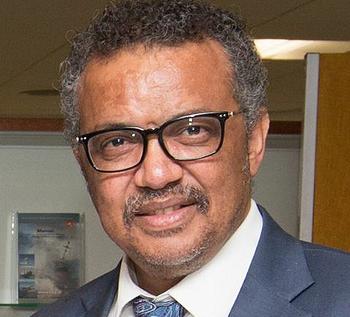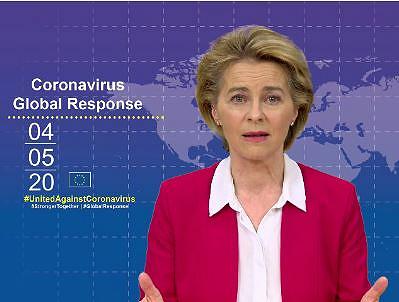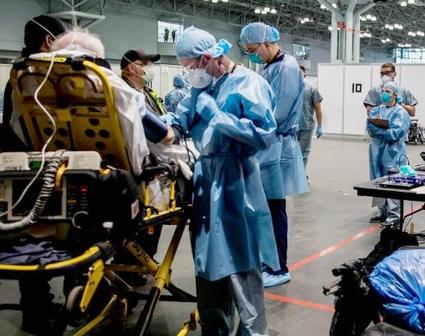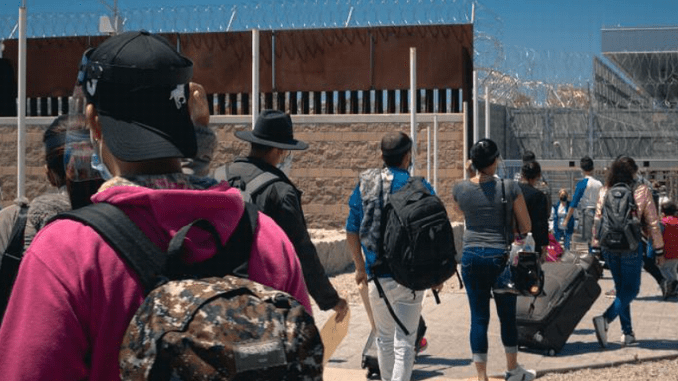
WASHINGTON, DC, July 21, 2022 (ENS) – Mexico and the United States are taking action on a new development cooperation framework that addresses the root causes of irregular migration from El Salvador, Guatemala, and Honduras. Under this framework, called Sembrando Oportunidades, or Sowing Opportunities, the Mexican Agency for International Development Cooperation, Amexcid, and the U.S. Agency for International Development, USAID, will coordinate to help the citizens of El Salvador, Guatemala and Honduras build prosperous futures in their home communities.
The Government of Mexico is implementing the largest development programs in Central America in its history, and President Joe Biden has made a historic commitment to the region under the United States Strategy to Address the Root Causes of Migration in Central America.
Amexcid plans to continue assisting small farmers through its Sembrando Vida agriculture and reforestation program, and in coordination USAID plans to continue helping farmers reach new, higher-value market opportunities.
Through Sembrando Vida, which began in 2019, Mexican farmers are paid 5,000 pesos (US$242) a month to cultivate timber and certain crops on small parcels of previously bare land. The bare land rule of the program presents farmers with an incentive to clear land in order to qualify. They have been told to clear even healthy trees, which has raised questions about the design of the Sembrando Vida program.
Nevertheless, the complementary efforts of the two countries are set to begin in Honduras, where Amexcid and USAID will provide skills and experience to young people with the goal of steering them toward long-term employment, reducing the risk of irregular migration.
Under this initiative, the two governments aim to reach more than 500,000 at-risk youth in Honduras. Both Mexico and the United States have allocated resources for this project and both agencies have begun to coordinate their efforts. Sembrando Oportunidades will offer additional youth workforce development and agriculture activities as funds become available.
Presidents Biden and Obrador Pledge Cooperation
At the White House on July 12, President Joe Biden hosted Mexican President Lopez Obrador. In their joint statement, the two leaders gave top priority to dealing with migration issues. Food insecurity is a big part of the reason why Central Americans attempt to migrate to the United States.
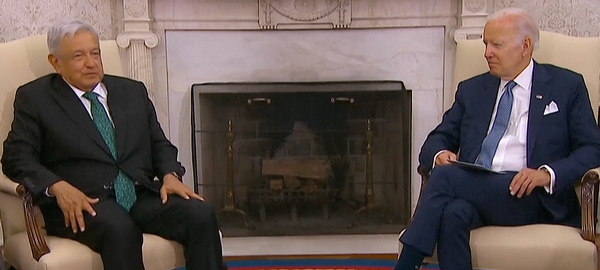
In their joint statement, Presidents Biden and Obrador announced that as part of joint efforts to improve food security, Mexico plans to purchase up to 20,000 tons of milk powder from the United States to assist Mexican families in rural and urban communities. In addition, Mexico will buy up to one million tons of fertilizer, ammonium sulfate, from the United States to distribute to subsistence farmers and continue to buy animal feed to assist small producers.
The two presidents said, “Borders that are more resilient, more efficient, and safer, will enhance our shared commerce. We are committed like never before to completing a multi-year joint U.S.-Mexico border infrastructure modernization effort for projects along the 2,000-mile border. The joint effort seeks to align priorities, unite border communities, and make the flow of commerce and people more secure and efficient.”
“President Biden’s Bipartisan Infrastructure Law includes $3.4 billion to undertake 26 major construction and modernization projects at land ports of entry on the northern and southern border. These land port modernization projects will create good-paying local jobs, bolster safety and security, and make the economy more resilient to supply chain challenges – all while serving as models for sustainability and innovation. Mexico has committed to invest $1.5 billion on border infrastructure between 2022 and 2024,” the presidents said.
Further, on July 12, Presidents Biden and Obrador said, “We will focus our development efforts on climate solutions and the development of southern Mexico, with its vast human potential and important opportunities for commerce, conservation, and clean energy.”
“Facing the shared challenges of climate change, we resolve to promote a business environment that advances a greener, cleaner North America, acknowledging the importance of investing in and promoting renewable sources of energy,” they pledged.
“We commit to tackle methane emissions from oil and gas and other sectors, accelerate the transition to zero-emission vehicles, and deepen our efforts to seek nature-based solutions, enabling our two countries to become global leaders in clean energies and actions to combat climate change,” the two leaders promised.

Mexico and Pemex, the Mexican state-owned petroleum company, in cooperation with the United States and in support of the Global Methane Pledge and Global Methane Pledge Energy Pathway, will develop an implementation plan to eliminate routine methane flaring and venting across onshore and offshore oil and gas operations and identify priority projects for investment.
On June 7, the European Space Agency published research showing the release of thousands of tons of methane gas into the atmosphere coming from a Pemex platform in the Gulf of Mexico during this past December.
The Sowing of Opportunities Has Already Begun
Amexcid and USAID staffers have made joint trips to northern Central America to identify potential areas of collaboration.
USAID plans to complement Amexcid’s Youth Building the Future program by associating scholarship opportunities available as an option for youth who are part of the Amexcid program.
In El Salvador, the assistance will be carried out through the Scholarships for Educational Opportunities program financed by USAID with the International Organization for Migration.
USAID plans to initiate and evaluate pilot programs focused on conditional cash transfers in the region, and will share its findings with Amexcid.
USAID also plans to strengthen the institutional partnership with Amexcid under the Sembrando Oportunidades framework, sharing materials and best practices, as well as establishing a coordinated research and learning agenda that will include rigorous analysis to inform programs that seek to address structural causes. of migration and develop guidelines for designing joint initiatives.
As part of Sembrando Oportunidades the United States and Mexico will work together in El Salvador, Guatemala, and Honduras to promote good governance, a better business environment, and increased investment by national governments in underserved communities.
Sowing Opportunities expands on the shared vision of development cooperation to address the root causes of migration discussed by President López Obrador and President Joe Biden during the North American Leaders Summit.
The program is also based on the Memorandum of Understanding signed by the governments of Mexico and the United States on June 8, 2021 during Vice President Kamala Harris’ visit to Mexico City.
Mexico’s Ministry of Foreign Affairs says Sowing Opportunities represents the shared vision and joint commitment to promote a more inclusive and sustainable development in El Salvador, Guatemala and Honduras.”
In recent months, attempted migration from these three countries has decreased due to Title 42 expulsions – removals by the U.S. government of persons who have recently been in a country where a communicable disease, such as COVID-19, was present. The authority for contagion-related expulsions is set out by law in 42 U.S.C., section 265. The Trump administration used this provision to block land entry for many migrants, and the program has been continued by the Biden administration.
Featured image: A group of people in the northern Mexico city of Tijuana approach the border to enter the United States in an operation accompanied by International Organization for Migration personnel. June 28, 2022 (Photo courtesy International Organization for Migration)

